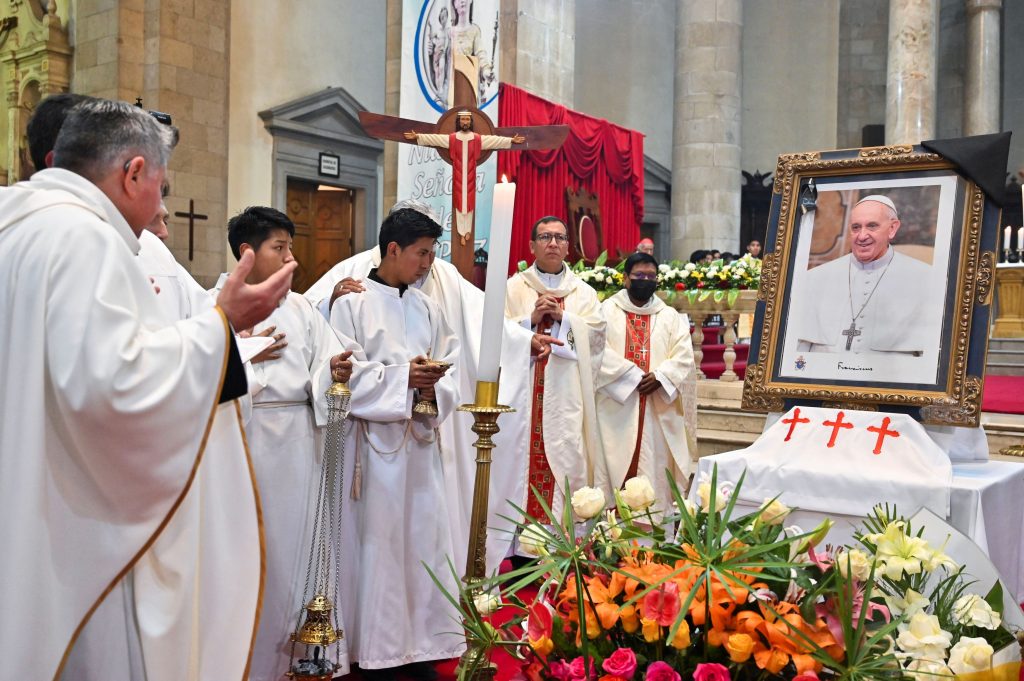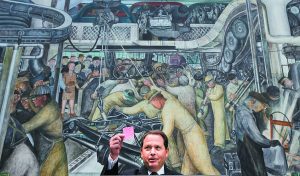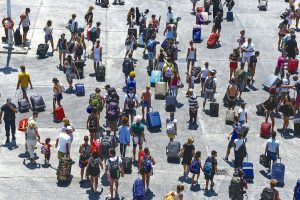TEL AVIV—Over 326 days as a hostage in Gaza, Qaid Farhan Al-Qadi survived mostly on bread and dates, often underground. His captors moved him from tunnel to tunnel, never staying in one place very long.
Then on Tuesday, hearing Israeli soldiers approaching, Al-Qadi’s guards suddenly fled, leaving him alone in a tunnel and frightened the troops might mistake him for a militant.
“Don’t shoot! I’m Farhan,” he called out. Answering back through a megaphone, the soldiers held their fire and satisfied themselves they weren’t walking into an ambush.
It was a tense ending to Al-Qadi’s nearly 11-month ordeal . The troops extracted him from the tunnel and flew him from southern Gaza to a hospital in Israel where the gaunt but smiling 52-year-old was reunited with his family.
Al-Qadi, an Israeli Muslim from an Arab community known as Bedouins, is the father of 11 children and a brother to 10 siblings. He lives in a small village in Israel’s Negev Desert.
Hamas militants who assaulted southern Israel on Oct. 7 kidnapped him from a kibbutz where he worked as a security guard for a packaging factory. He is the eighth hostage to be freed alive by Israel’s military, and the first to be freed while inside a tunnel.
Quiet but friendly and always smiling before he was taken prisoner, Al-Qadi told friends and relatives that he progressively lost faith that he would be rescued the longer his captivity went on.
He lost nearly 45 pounds, and while underground for weeks at a time he often had no idea whether it was day or night. Hearing Israeli airstrikes, he feared he could die at any moment.
He had heard reports from his guards about the potential for a deal to free him and other hostages, according to Mazen Abu Siam, a friend of Al-Qadi’s for two decades who spoke with him in the hospital.
Al-Qadi said he was kept with other hostages at times. One elderly Jewish captive died beside him. Though he was a Muslim, his captors handled him the same as other hostages, said Ata Abo Mdegm, a former mayor of the Bedouin city of Rahat, who visited Al-Qadi in the hospital on Tuesday.
“He was treated just like a Jewish hostage. They didn’t give him any privileges for being a Muslim Bedouin,” Mdegm said Al-Qadi told him. Al-Qadi was selfless with an “unbreakable spirit,” he added.
But after the accumulation of letdowns, Al-Qadi gave up on being freed. More recently, he had been kept alone in a room underground, cut off from anyone but his guards. His days were spent either sleeping or praying.
“I lost hope,” Al-Qadi told Abu Siam.
The military said it was combing the tunnels where Al-Qadi was found by Israeli special forces following intelligence that hostages could be held there.
In a phone call Tuesday with Israeli Prime Minister Benjamin Netanyahu , Al-Qadi thanked the Israeli leader for his rescue, urging him not to forget others still in captivity. “You truly did sacred work. There are other people who are waiting,” Al-Qadi told Netanyahu.
Al-Qadi’s relatives have called for Israel’s government to swiftly accept a deal that would end the fighting in Gaza in exchange for the freeing of hostages . But the latest round of talks has made little progress in bridging gaps between demands set by Netanyahu and Hamas leader Yahya Sinwar .
There are still three Bedouin hostages believed to be alive, and another who was previously declared dead by Israeli officials. Two Bedouin teenagers were among 100 hostages released during a brief pause in the fighting in November.
Around 20 Bedouin were killed during Hamas’s Oct. 7 attacks on southern Israel, Mdegm said, in which a total of around 1,200 people were killed and 250 taken hostage, according to Israeli authorities.
Around 300,000 Bedouins live in southern Israel, most of them in small villages, many of which lack basic services like water, electricity and trash collection.
Al-Qadi’s village has mounds of uncollected trash and has been classified by the government for demolition, said Mdegm. “He leaves the bunker one day to live next to rubbish the next,” he said.
But for one day at least, it was a joyful place, Abu Siam said. When Al-Qadi returned Wednesday, a tent had been erected outside his home, where he greeted hundreds of well-wishers, smiling broadly.
Speaking from the tent to a gaggle of Israeli media, Al-Qadi stressed he hoped that families of both Israelis and Palestinians would be reunited with loved ones as soon as possible.
“I’m not full with my joy and family while there are people in captivity, here and there,” he said. “I pray and hope that there will be an end to this thing.”
Write to Dov Lieber at dov.lieber@wsj.com



